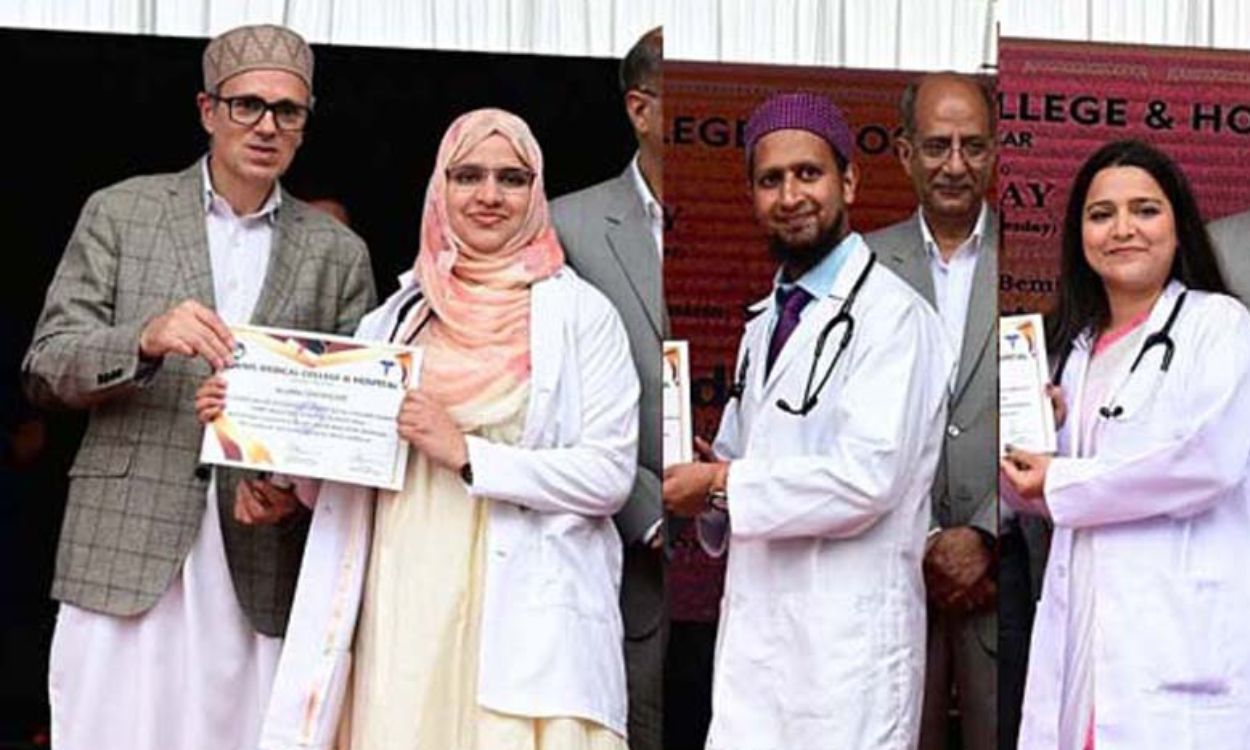Bilal Veeri CNI
Chief Minister Omar Abdullah today addressed the Annual Day function of SKIMS Medical College & Hospital, Bemina, where he commended the commitment of the faculty, students and newly inducted doctors.
Addressing a gathering of medical professionals, students, staff, and parents, the Chief Minister said that the role of doctors in society is one of immense responsibility and trust. “Patients in our region place their utmost faith in their doctors, almost as much as they place in Allah,” he said. “It is our collective duty to uphold that sacred trust with integrity and compassion.”
Highlighting the rapid evolution in medical science, the Chief Minister noted the constant advancement in technologies, treatments, and surgical methods. “From robotics to artificial intelligence, the medical profession is now at a crossroads of human care and machine efficiency. While tools like ChatGPT can simulate empathy and generate treatment suggestions, they can never replace the human touch that defines this profession,” he remarked.
In a light-hearted personal reflection, Omar Abdullah recalled how he narrowly avoided a career in medicine due to his fear of cadaver dissection, choosing instead to pursue commerce. “I lacked the aptitude and courage to become a doctor—but I have always had the utmost respect for those who do,” he said.
The Chief Minister emphasized that earning a medical degree is only the beginning, and the real challenge lies in applying that knowledge to serve people, especially in underserved and rural areas. He urged young doctors to embrace government service not merely for job security but as a platform to deliver care where it is most needed. “I meet aspirants who seek government jobs but don’t want to be posted even a few kilometers away from home. That mindset needs to change,” he added.
Underscoring the government’s focus on healthcare, the Chief Minister said that health and medical education would continue to receive top priority in budgetary allocations. “You have our full support—whether it’s infrastructure, staffing or training. But improving urban hospitals alone is not enough. If we are referring normal deliveries and minor surgeries to tertiary care due to staff shortages in rural areas, we are failing our system,” he said.
